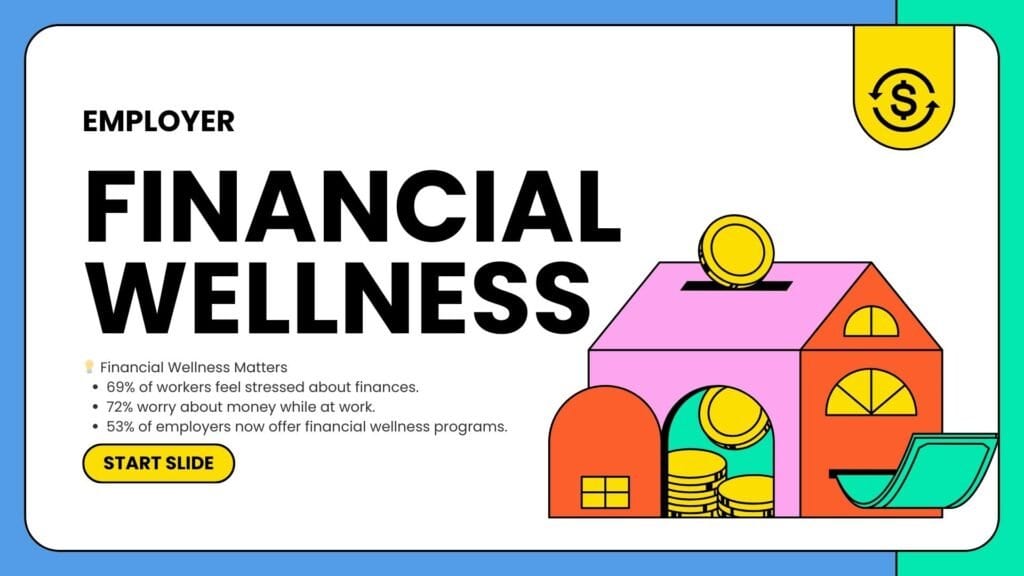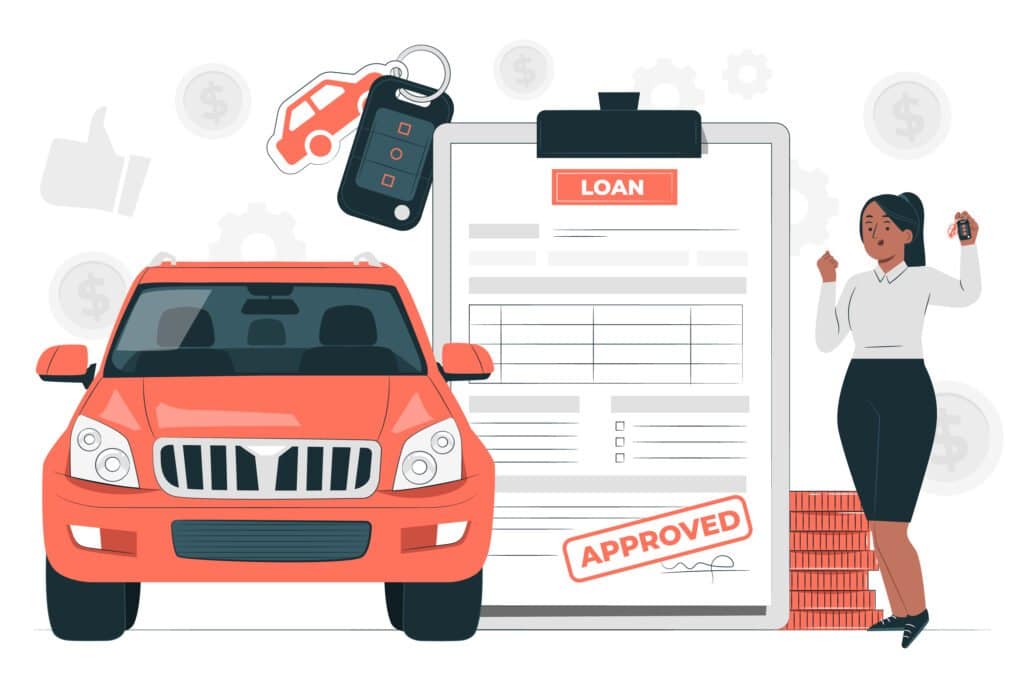Personal Loans for Debt Consolidation
Debt can become overwhelming when you’re juggling multiple payments, interest rates, and due dates. That’s where debt consolidation can step in to simplify your financial life. Debt consolidation means combining multiple debts into one loan with a lower interest rate or more manageable payment terms. Personal loans are a popular tool for this purpose because they can streamline your finances and help you become debt-free more efficiently.
In this guide, we’ll break down everything you need to know about using personal loans for debt consolidation, explaining how they work, the pros and cons, and how to find the best options for your financial situation.

What Are Personal Loans?
A personal loan is an unsecured loan provided by a bank, credit union, or online lender to an individual for various personal uses. It’s called “unsecured” because you don’t need to put up collateral (like a house or car) to get the loan, though secured personal loans do exist and may require collateral. The funds can be used for almost anything: debt consolidation, home improvements, medical bills, or even vacations.
Personal loans are typically paid back in fixed monthly payments over a set period, usually ranging from two to five years. The interest rate is fixed, meaning it doesn’t fluctuate over the life of the loan.
Best Personal Loans for Debt Consolidation: Top Lenders and Benefits
These top lenders offer competitive interest rates, flexible repayment terms, and minimal fees, helping you streamline your finances and pay off debt faster. Discover the options that fit your financial needs and start your journey to becoming debt-free.

SoFi Personal Loans
-
APR
7.99% – 23.43% (with Autopay)
-
Loan Amount
$5,000 – $100,000
-
Loan Terms
24 – 84 months
-
Interest Rate Type
Fixed
-
Funding Time
Typically 1 – 2 days
SoFi is ideal for borrowers with good credit who want not only competitive rates but also added perks that go beyond just taking out a loan. The unemployment protection program stands out, offering relief if you lose your job while repaying your loan. SoFi also provides financial planning and career coaching at no extra cost, making this lender an excellent choice if you’re looking for long-term financial growth and stability.
- No fees: You won’t be surprised by hidden charges like origination or late fees.
- High loan amounts: Perfect for those consolidating large debts, with loans available up to $100,000.
- Unemployment protection: Unique feature if you’re worried about job instability.
- Strict credit requirements: SoFi is only available to borrowers with good to excellent credit.
- Approval time: While most loans are funded in 1 – 2 days, some applicants report a longer approval process.
LightStream
-
APR
7.99% – 25.99% (with Autopay)
-
Loan Amount
$5,000 – $100,000
-
Loan Terms
24 – 144 months
-
Funding Time
Same-day funding available in some cases
LightStream is a fantastic option for borrowers with excellent credit who are consolidating larger debts and need flexibility. The Rate Beat Program ensures that you’ll always get the lowest available rate. Another benefit is the longer repayment terms, which can stretch up to 12 years—ideal for those who want smaller monthly payments. Same-day funding is also available, so you can get your money fast when you need it most.
- Rate Beat Program: Guarantees the lowest rate if you qualify for a competing offer.
- Flexible repayment terms: You can choose terms up to 144 months, which makes it easier to budget.
- No fees: No hidden costs, making the loan more affordable over time.
- High credit requirement: You need excellent credit to qualify for LightStream’s best rates.
- No soft credit check: Pre-qualification isn’t available, so you can’t check rates without impacting your credit score.

Marcus by Goldman Sachs
-
APR
6.99% – 24.99%
-
Loan Amount
3,500 – $40,000
-
Loan Terms
36 – 84 months
-
Funding Time
1 – 2 days
Marcus offers a straightforward and transparent loan with no fees, and we especially like the option to defer one payment after 12 consecutive on-time payments. This flexibility can be a lifesaver if an unexpected expense arises. The loan amounts are more modest, which makes Marcus perfect for mid-sized debt consolidation. Plus, the brand reliability of Goldman Sachs adds trustworthiness to the loan process.
- No fees: Truly fee-free, with no hidden charges for origination or early repayment.
- Deferred payment option: A unique feature that allows some breathing room if you need it.
- Competitive rates: Excellent rates for good credit borrowers.
- Lower maximum loan amount: You can only borrow up to $40,000, which may not be enough for larger consolidations.
- Strict credit requirements: You’ll need good to excellent credit to qualify for the best rates.

Discover Personal Loans
-
APR
6.99% – 24.99%
-
Loan Amount
$2,500 – $35,000
-
Loan Terms
36 – 72 months
-
Funding Time
1 – 4 days
Discover offers fixed rates, making your monthly payments predictable, and they provide flexibility with repayment terms up to 84 months. Another benefit is their 24/7 customer service, ensuring you can always reach out if you have questions or concerns. No fees make this an appealing option for those consolidating smaller to mid-sized debts.
- Fixed interest rates: You’ll know exactly how much you need to pay each month.
- No origination or prepayment fees: There are no penalties for paying off your loan early.
- Longer repayment terms: With terms up to 84 months, you can tailor the loan to fit your budget.
- Lower maximum loan amount: Limited to $35,000, which may not be sufficient for larger debt consolidations.
- Requires good credit: Only borrowers with strong credit profiles qualify for the best APRs.

Upgrade Personal Loans
-
APR
8.24% – 35.97%
-
Loan Amount
$1,000 – $50,000
-
Loan Terms
36 – 60 months
-
Funding Time
1 – 4 days
Upgrade offers a unique value for borrowers with fair to lower credit scores. It’s easier to qualify for than other options, making it an excellent choice if you’re trying to consolidate debt but don’t have the best credit profile. Upgrade also includes a credit monitoring tool, helping you keep track of your credit score as you repay the loan. With a minimum loan amount of just $1,000, it’s great for smaller debts.
- Accessible to fair credit borrowers: Easier approval for those with lower credit scores.
- Credit monitoring included: A handy feature for tracking and improving your credit score.
- Low loan minimum: Loans start at $1,000, perfect for consolidating smaller amounts.
- High APRs for low credit: Rates can be steep if your credit score is lower.
- Origination fees: Additional fees can raise the overall cost of the loan.
Types of Personal Loans for Debt Consolidation
When considering a personal loan for debt consolidation, it’s important to understand the different types of personal loans available:
1. Unsecured Personal Loans
Unsecured personal loans are the most common type used for debt consolidation. Since there’s no collateral required, these loans are based on your creditworthiness. Your credit score, income, and overall financial health will determine your loan amount and interest rate. If you have a strong credit score, you’ll qualify for better terms and lower interest rates, making this an attractive option for consolidating high-interest credit card debt.
2. Secured Personal Loans
For borrowers with lower credit scores or less favorable credit histories, secured personal loans can be an option. These loans require you to put up collateral—like a vehicle or savings account—which the lender can claim if you default on the loan. Secured loans often come with lower interest rates, making them ideal if you’re confident in your ability to repay the loan but want a better deal.
3. Debt Consolidation Loans
Many lenders offer personal loans specifically for debt consolidation. These loans are designed to combine multiple debts into a single monthly payment. These loans tend to have competitive interest rates and flexible repayment terms, making them an ideal solution if you want to simplify your finances and reduce your interest costs.
How Personal Loans Can Help with Debt Consolidation
Using a personal loan to consolidate your debt comes with several benefits that can streamline your financial obligations and help you save money in the long run.
1. Simplifying Payments
The main advantage of debt consolidation through a personal loan is simplicity. Instead of keeping track of multiple due dates, payment amounts, and interest rates, you’ll make a single monthly payment to one lender. This makes managing your finances less stressful and helps you avoid missed payments, which can damage your credit score.
2. Lower Interest Rates
Personal loans generally come with lower interest rates than credit cards, especially if you have good credit. By consolidating high-interest credit card debt into a lower-interest personal loan, you’ll reduce the overall amount of interest you pay over the life of the loan. This can accelerate your progress toward becoming debt-free.
3. Improved Credit Score
Consolidating debt with a personal loan can also boost your credit score. Credit card debt affects your credit utilization ratio, which is the percentage of your available credit that you’re using. A high credit utilization ratio can harm your credit score. When you pay off credit cards with a personal loan, your credit utilization decreases, which can lead to a higher credit score. Additionally, making timely payments on your personal loan will further improve your credit over time.
4. Lower Monthly Payments
In some cases, consolidating debt with a personal loan can result in lower monthly payments. This is especially true if you extend the repayment term, though doing so may increase the total interest you pay. However, lower monthly payments can provide immediate relief, making it easier to manage your budget and keep up with other expenses.
Potential Risks and Considerations
While consolidating your debt with a personal loan has many advantages, it’s important to consider the potential downsides before committing to this strategy.
1. Fees and Charges
Some personal loans come with fees that can add to the overall cost. These may include origination fees, prepayment penalties, and late payment fees. Before applying for a loan, carefully review the terms and conditions to understand all associated costs.
2. Impact on Credit Score
When you apply for a personal loan, the lender will perform a hard inquiry on your credit report, which can temporarily lower your credit score. Additionally, taking on new debt can affect your credit profile. However, responsibly managing your personal loan and making timely payments can ultimately improve your credit score in the long term.
3. Eligibility Requirements
Personal loans aren’t available to everyone. Lenders typically require you to meet certain eligibility criteria, such as having a minimum credit score, verifiable income, and stable employment history. If you don’t meet these requirements, you may not qualify for the loan or might receive higher interest rates.
Eligibility for Personal Loans
1. Credit Score Requirements
Most lenders require a minimum credit score to qualify for a personal loan. While the exact score needed varies by lender, borrowers with higher credit scores are more likely to be approved and receive favorable terms. If your credit score is lower, you may still qualify for a secured personal loan, but with higher interest rates.
2. Income Verification
Lenders want to ensure that you can repay the loan, so they will likely require proof of income. This could include recent pay stubs, tax returns, or bank statements. Having a stable and sufficient income can improve your chances of loan approval and help secure better loan terms.
3. Employment History
A steady employment history signals to lenders that you’re a low-risk borrower. Lenders may look for consistent work history when evaluating your loan application. If you’ve recently changed jobs or have gaps in employment, be prepared to explain these circumstances.
Top Lenders for Personal Loans for Debt Consolidation
1. Banks
Traditional banks often offer competitive personal loans for debt consolidation. If you have a good credit score, banks may provide lower interest rates and flexible repayment terms. However, they may have more stringent approval processes compared to other types of lenders.
2. Online Lenders
Online lenders often offer a streamlined application process and faster approval times. Many online lenders cater to borrowers with a range of credit scores, making it easier to find a loan that fits your needs.
3. Credit Unions
Credit unions typically offer lower interest rates and fees compared to traditional banks. If you’re a member of a credit union, it’s worth exploring their personal loan options for debt consolidation.
Alternatives to Personal Loans for Debt Consolidation
1. Balance Transfer Credit Cards
Balance transfer credit cards offer an introductory 0% APR for a limited time, making them a good option for consolidating credit card debt. However, you must be able to pay off the balance before the promotional period ends to avoid high interest rates.
2. Home Equity Loans
If you own a home, you might consider a home equity loan to consolidate debt. These loans typically have lower interest rates because they’re secured by your home. However, if you can’t make the payments, you risk losing your home.
3. Debt Management Plans
A debt management plan involves working with a credit counselor to create a plan for repaying your debts. The counselor negotiates with creditors to reduce interest rates and create a more manageable payment plan.
Debt consolidation through a personal loan can be an effective way to simplify your finances, reduce interest payments, and work toward becoming debt-free. However, it’s crucial to understand the terms and potential risks involved before proceeding. By comparing lenders, evaluating your financial situation, and making timely payments, you can take control of your debt and work toward a more secure financial future.
If you’re ready to take the next step, check out tools like the personal loan calculator.
Can I get a personal loan for debt consolidation with bad credit? Yes, it is possible to get a personal loan for debt consolidation with bad credit, although it might be more challenging. Lenders may offer loans with higher interest rates to compensate for the increased risk. To improve your chances, consider applying with a co-signer or securing the loan with collateral. Additionally, you can compare different lenders using tools like the personal loan calculator on The Bullish Capital to find the best options available.
What are the best personal loans for debt consolidation if I have fair credit? If you have fair credit, you can still qualify for personal loans for debt consolidation with competitive rates. Look for lenders that specialize in loans for fair credit borrowers. Online lenders, credit unions, and some banks may offer favorable terms. Use the credit card comparison tool on The Bullish Capital to find the best rates and terms.
Are personal loans for debt consolidation recommended on Reddit? Reddit is a valuable resource for personal experiences and recommendations. Many users on forums like r/personalfinance discuss their experiences with personal loans for debt consolidation. They share insights on which lenders to trust and tips for securing the best terms. However, always cross-reference any advice with professional financial resources and tools like those on The Bullish Capital.
How can a cosigner help me get a personal loan for debt consolidation? A cosigner with good credit can significantly improve your chances of getting approved for a personal loan for debt consolidation and may help you secure a lower interest rate. The cosigner agrees to be responsible for the loan if you default, reducing the lender’s risk. This can be particularly beneficial if you have a lower credit score.
Does Bank of America offer personal loans for debt consolidation? Bank of America does not currently offer personal loans for debt consolidation. However, you can explore other reputable lenders that provide such loans. Utilize the personal loan calculator and other financial tools on The Bullish Capital to compare alternatives and find the best solution for your needs.
How can I find personal loans for debt consolidation near me? To find personal loans for debt consolidation near you, start by checking local banks, credit unions, and online lenders. Many financial institutions have branch locations where you can apply in person. Additionally, use online comparison tools on The Bullish Capital to evaluate different loan options based on your location.
What are unsecured loans for debt consolidation, and how do they work? Unsecured loans for debt consolidation do not require collateral, such as a home or car. These loans are based on your creditworthiness and income. They can be a great option if you want to avoid risking your assets. While they may have higher interest rates compared to secured loans, they provide the flexibility of not tying the loan to your property.
Are private loans a good option for debt consolidation? Private loans for debt consolidation can be a good option, especially if you have exhausted other traditional lending options. Private lenders may offer more flexible terms and faster approval processes. However, they might come with higher interest rates. Always compare private loans with other options using tools like the personal loan calculator on The Bullish Capital.
What are cash loans for debt consolidation, and are they advisable? Cash loans for debt consolidation are typically short-term loans with higher interest rates, designed for quick access to funds. While they can provide immediate relief, they often come with higher costs. It’s advisable to explore other personal loan options first. Use the resources and comparison tools on The Bullish Capital to find more affordable debt consolidation solutions.
When it comes to funding your business, there are two main options to consider: debt financing and equity financing. Both can help you secure the money you need, but they work in very different ways. Understanding the differences can help you decide which option makes the most sense for your goals. Here’s a simple breakdown […]
When purchasing a vehicle, deciding how to pay for it is one of the biggest decisions buyers face. Should you finance your car through a loan or pay upfront with cash? Each approach has unique advantages and drawbacks, and the right choice often depends on your financial situation, goals, and long-term plans. In this guide, […]



